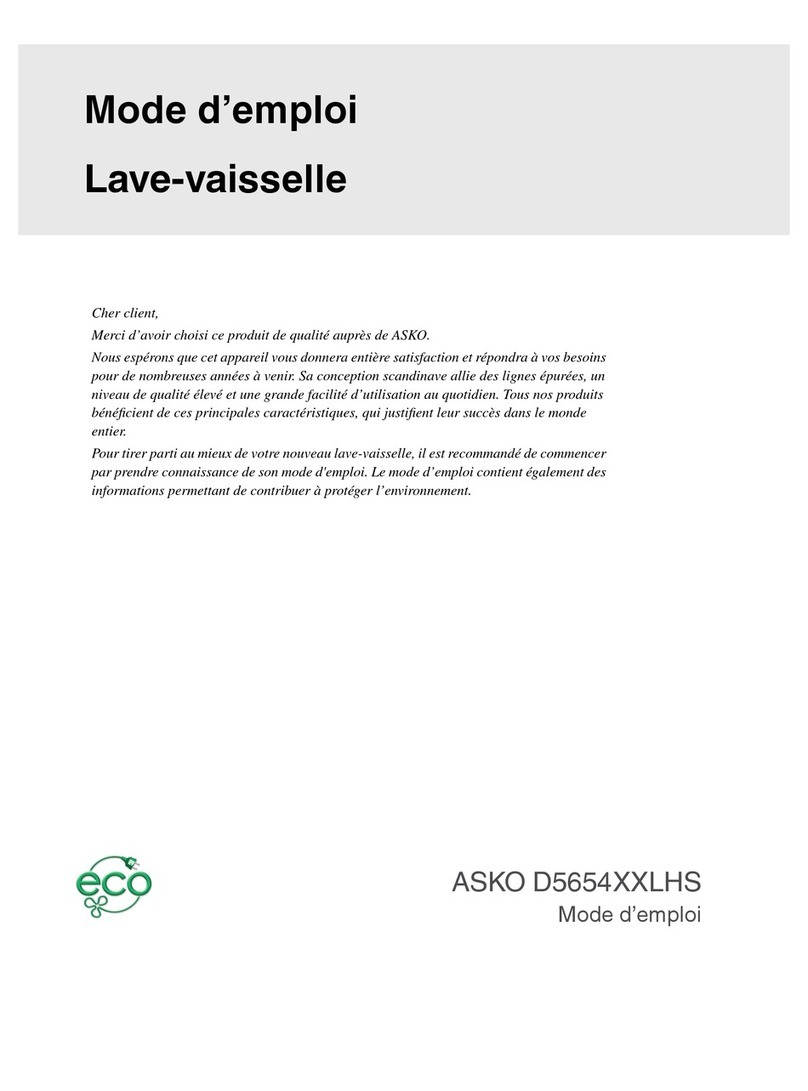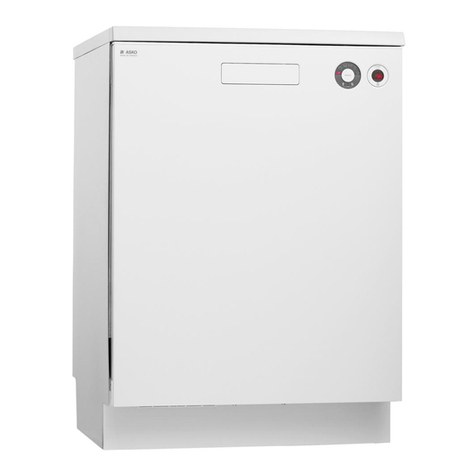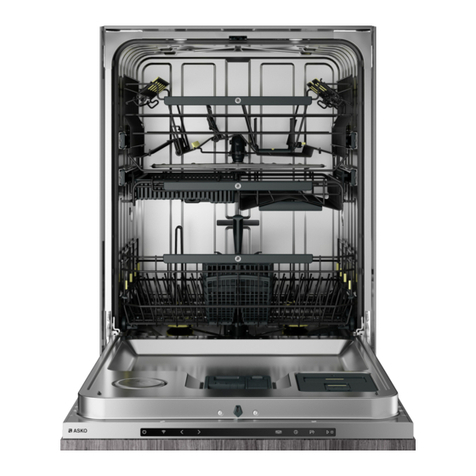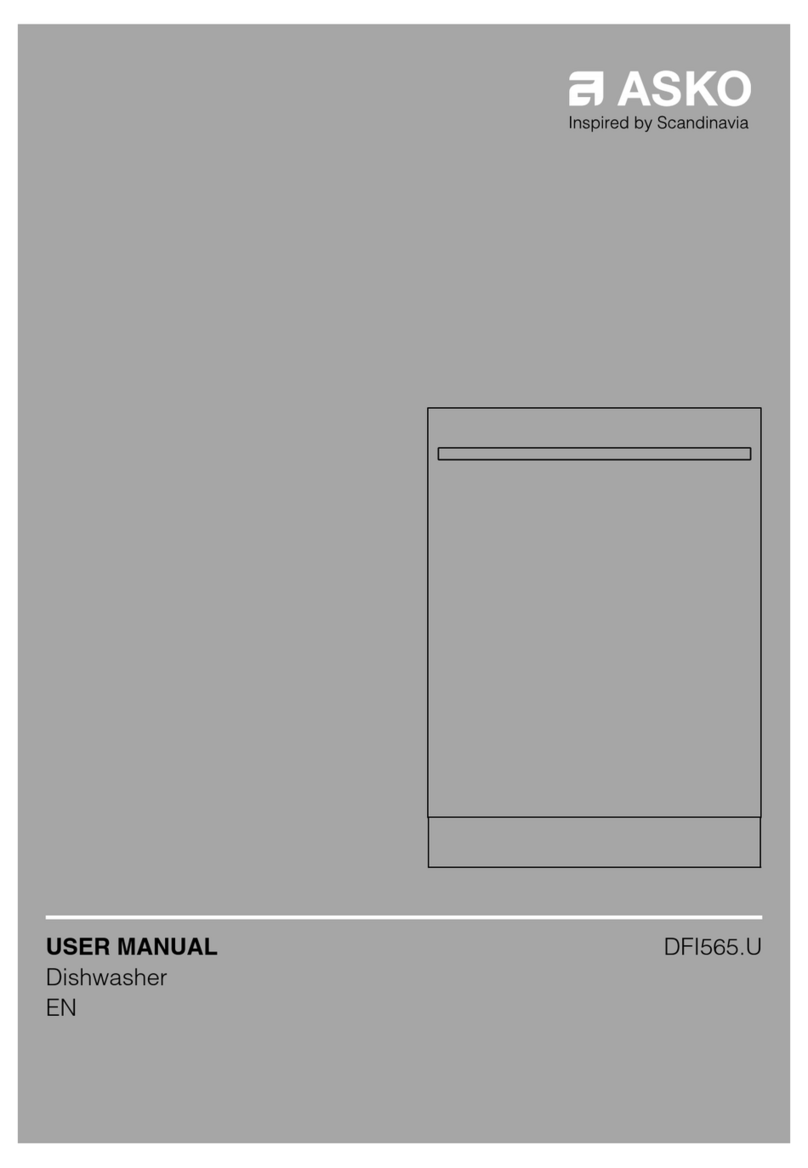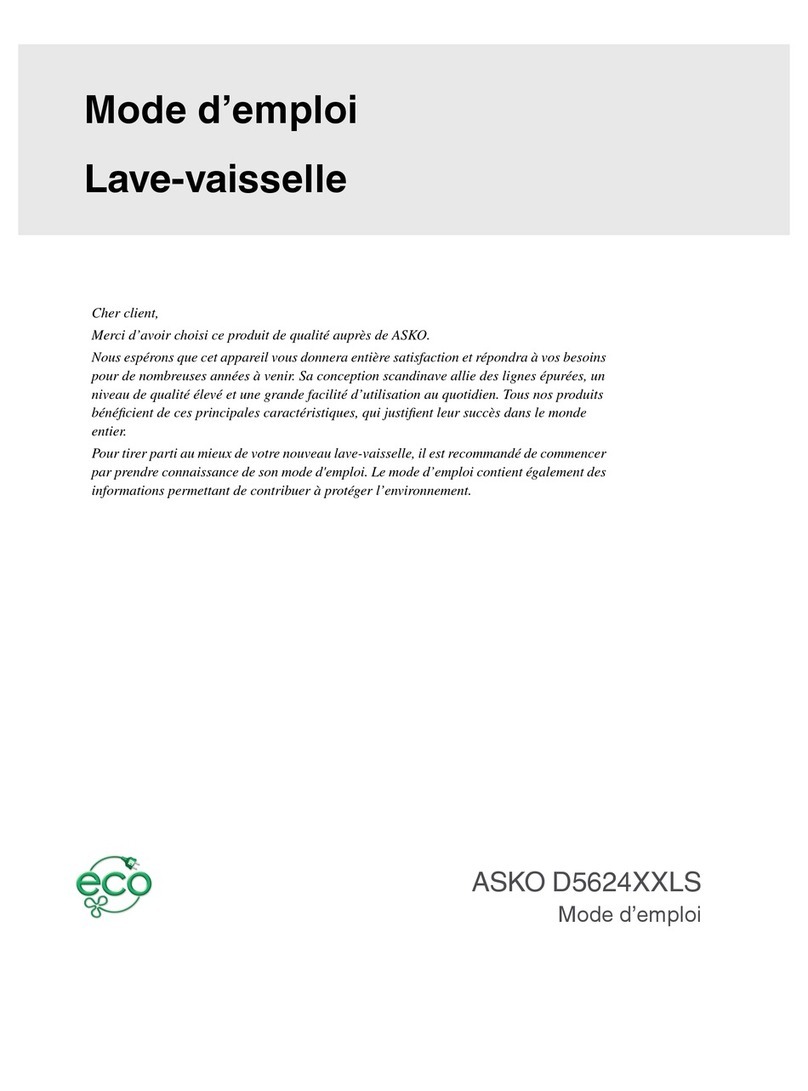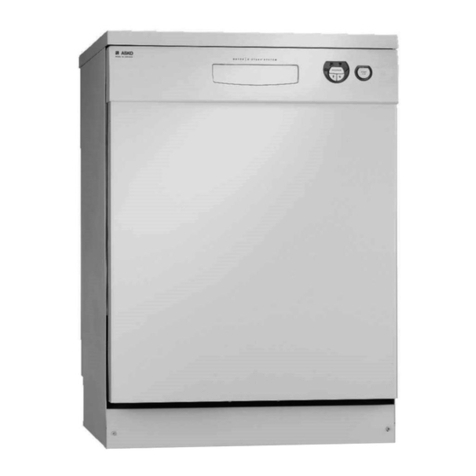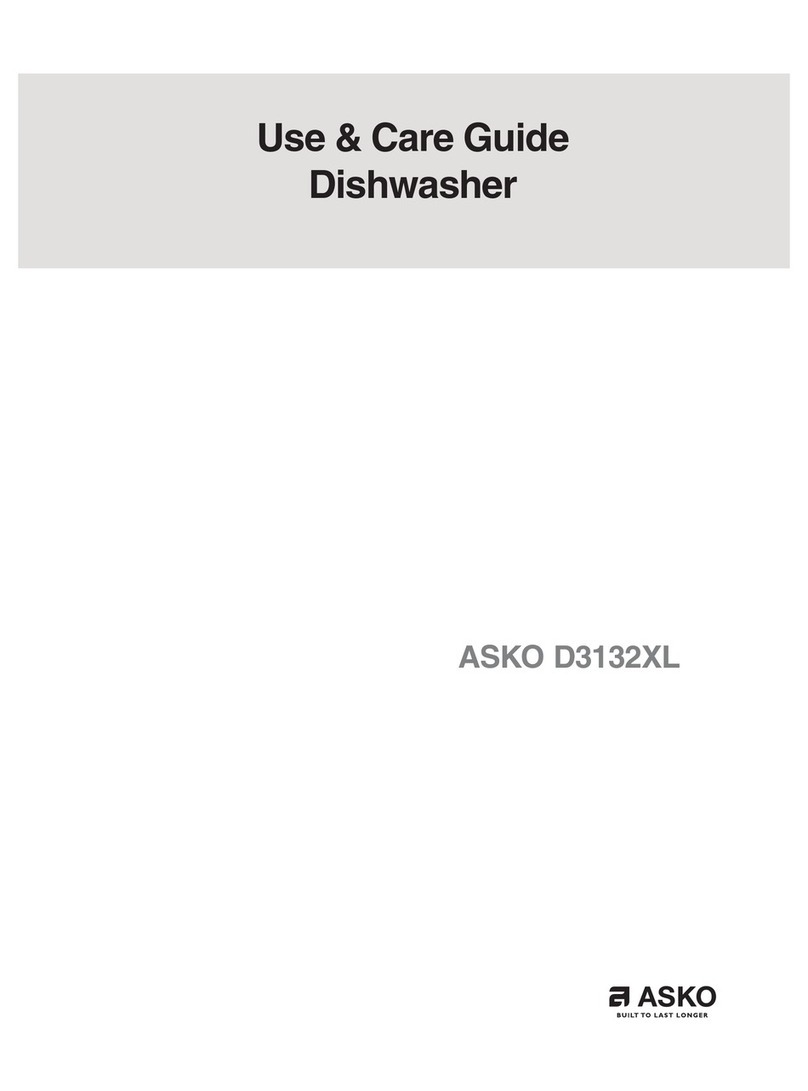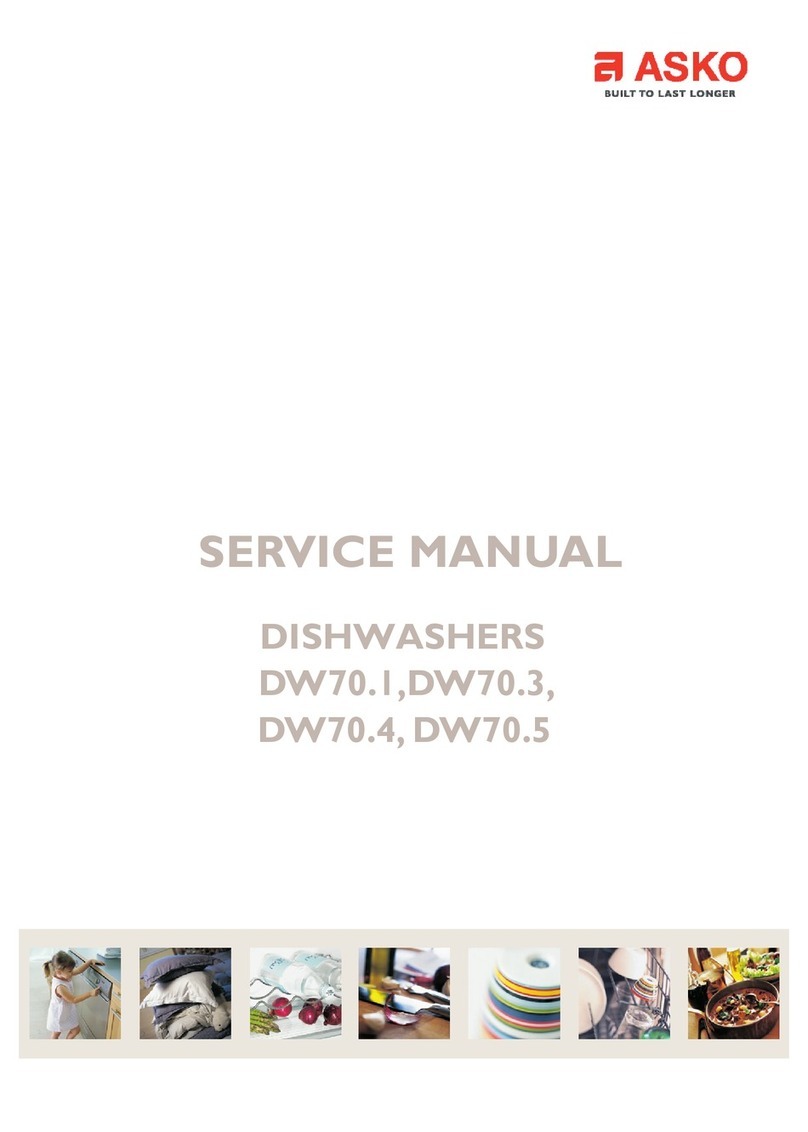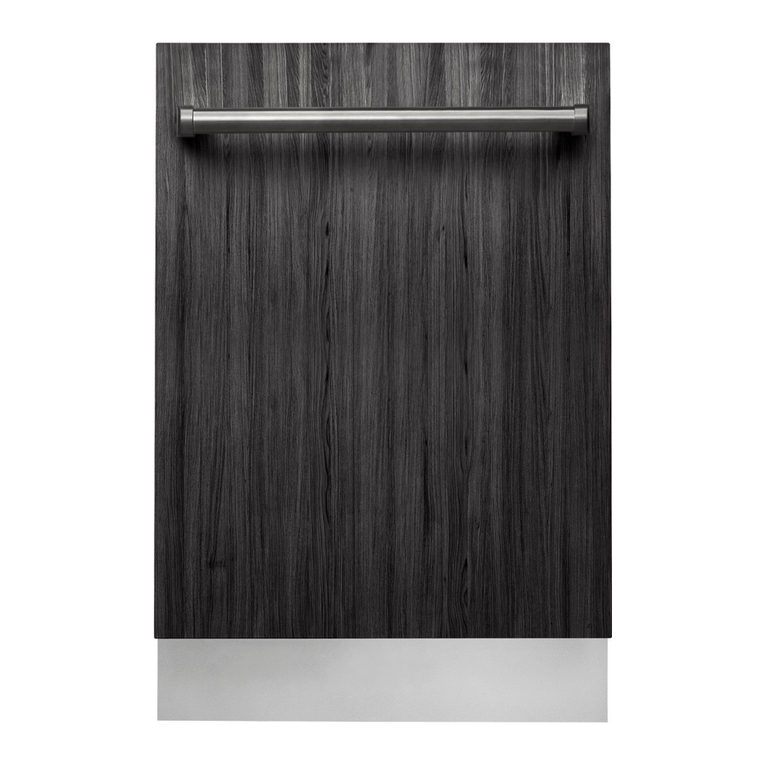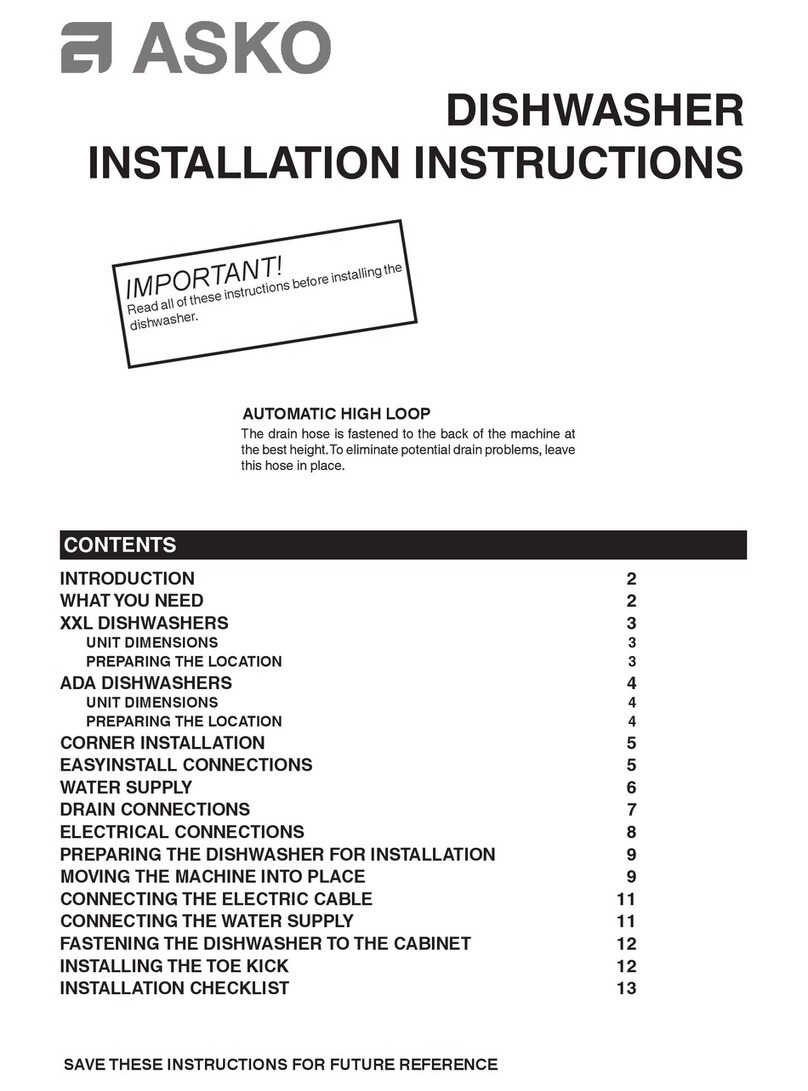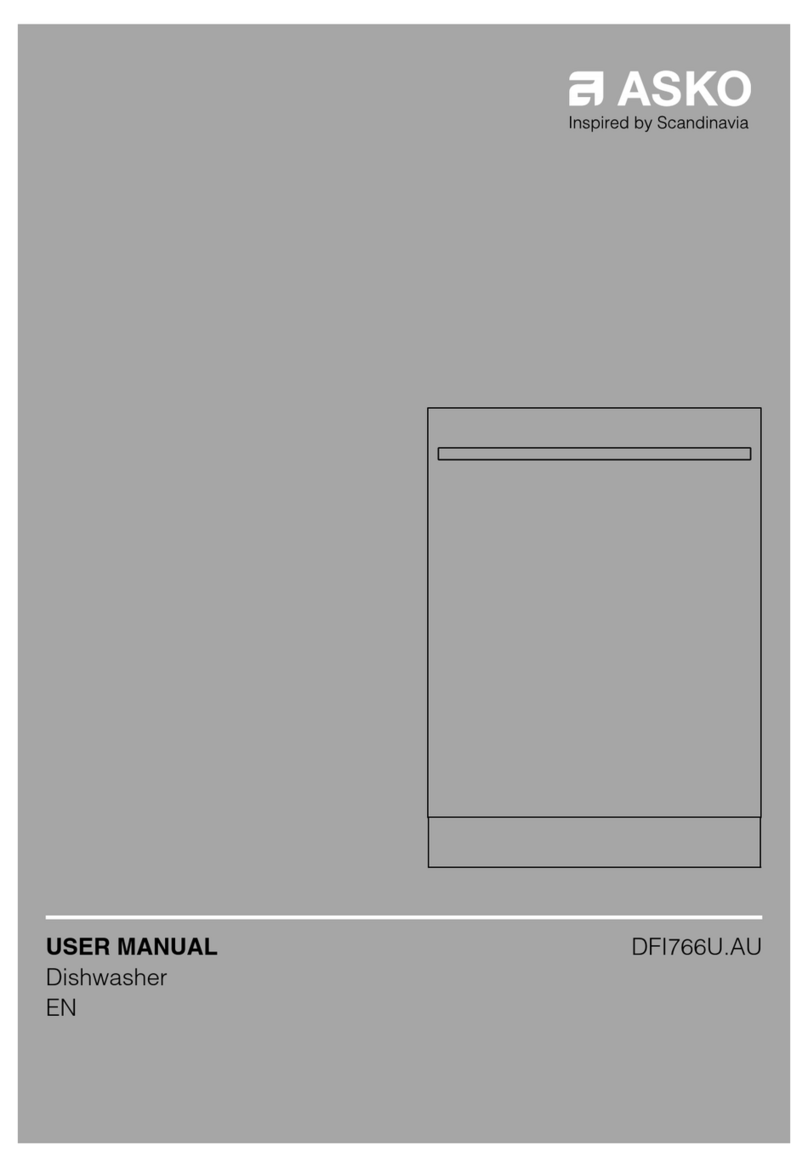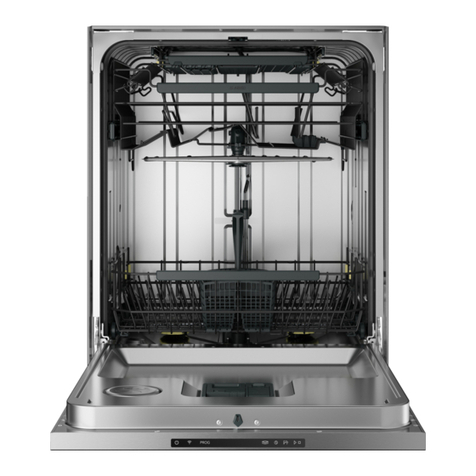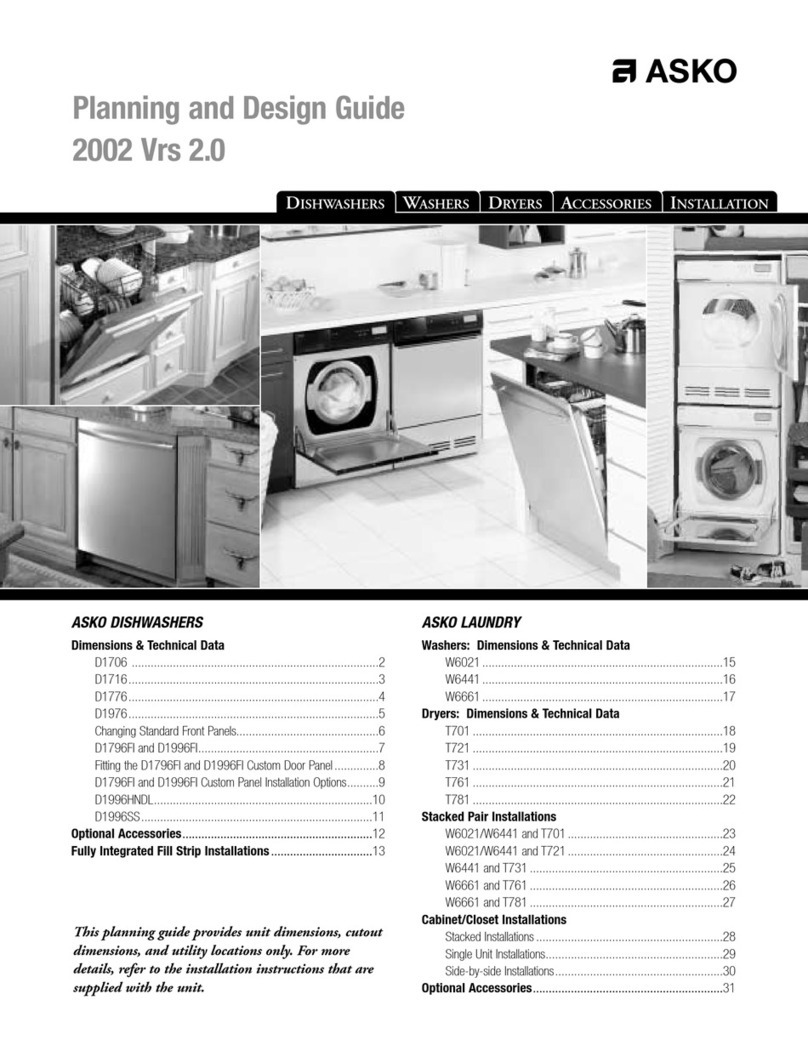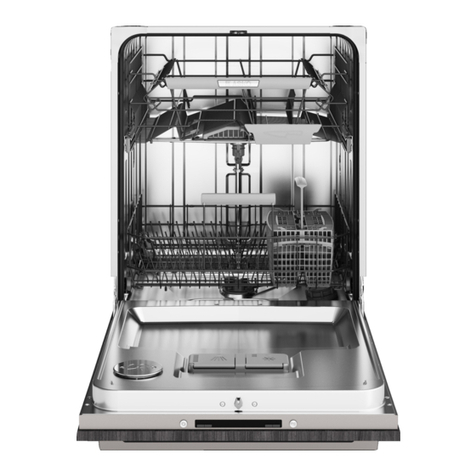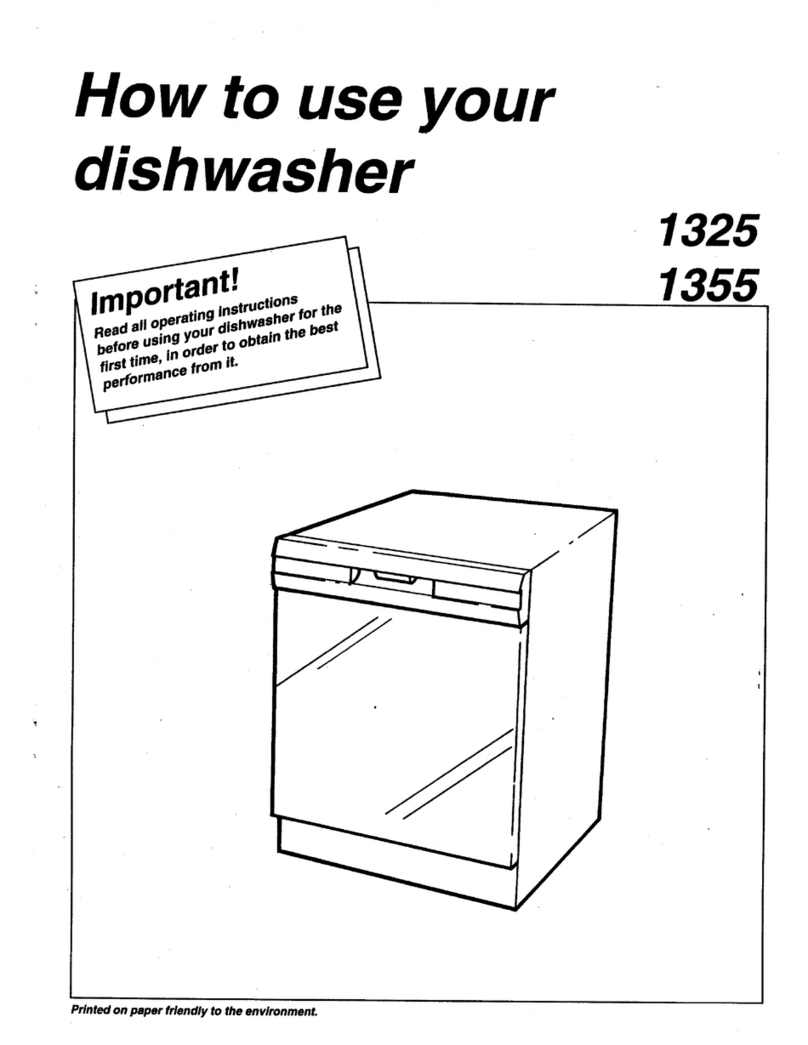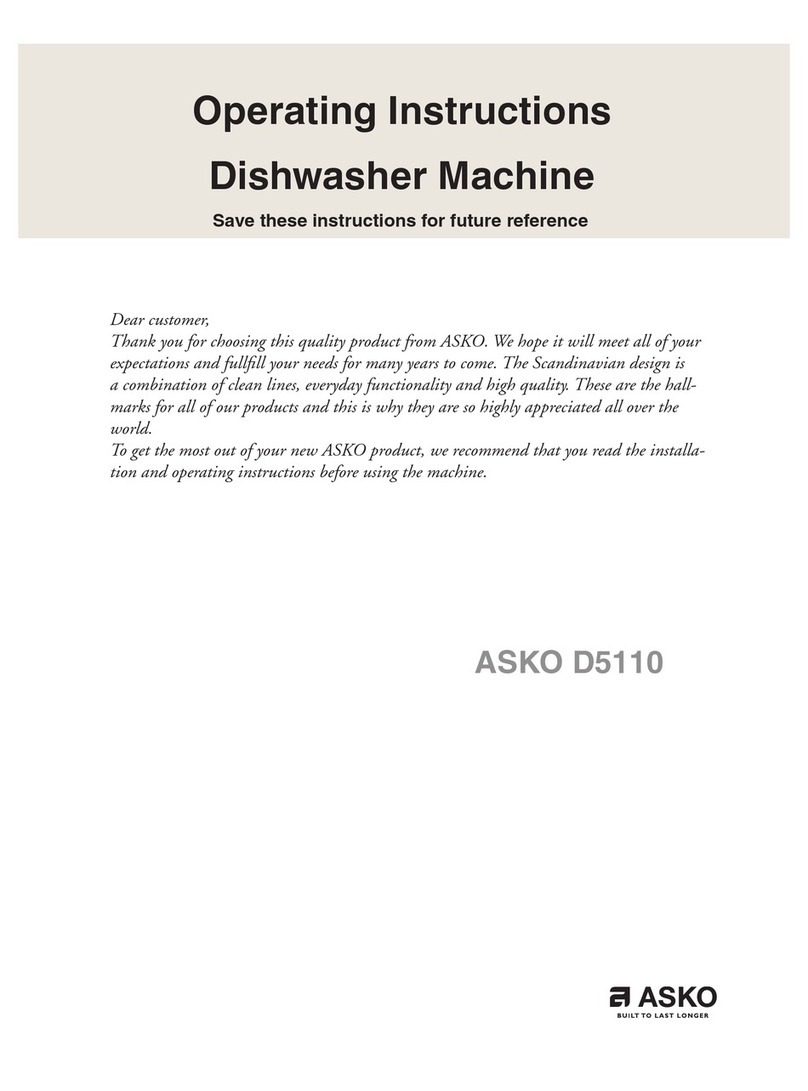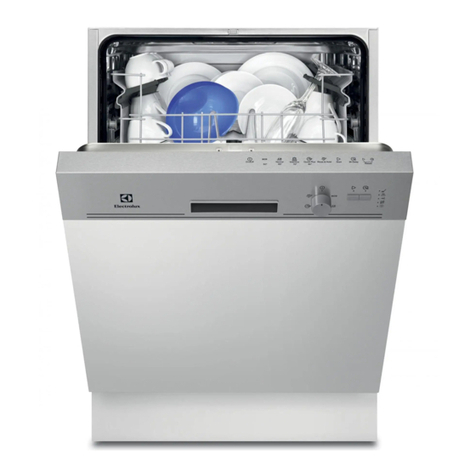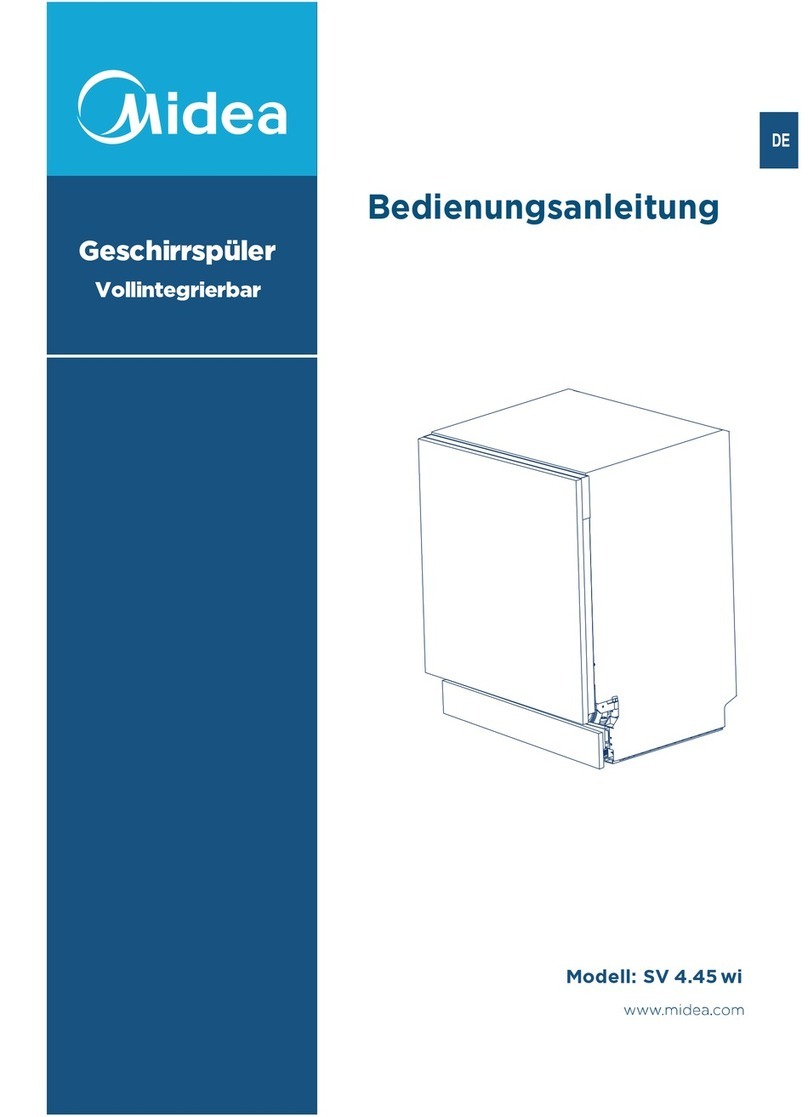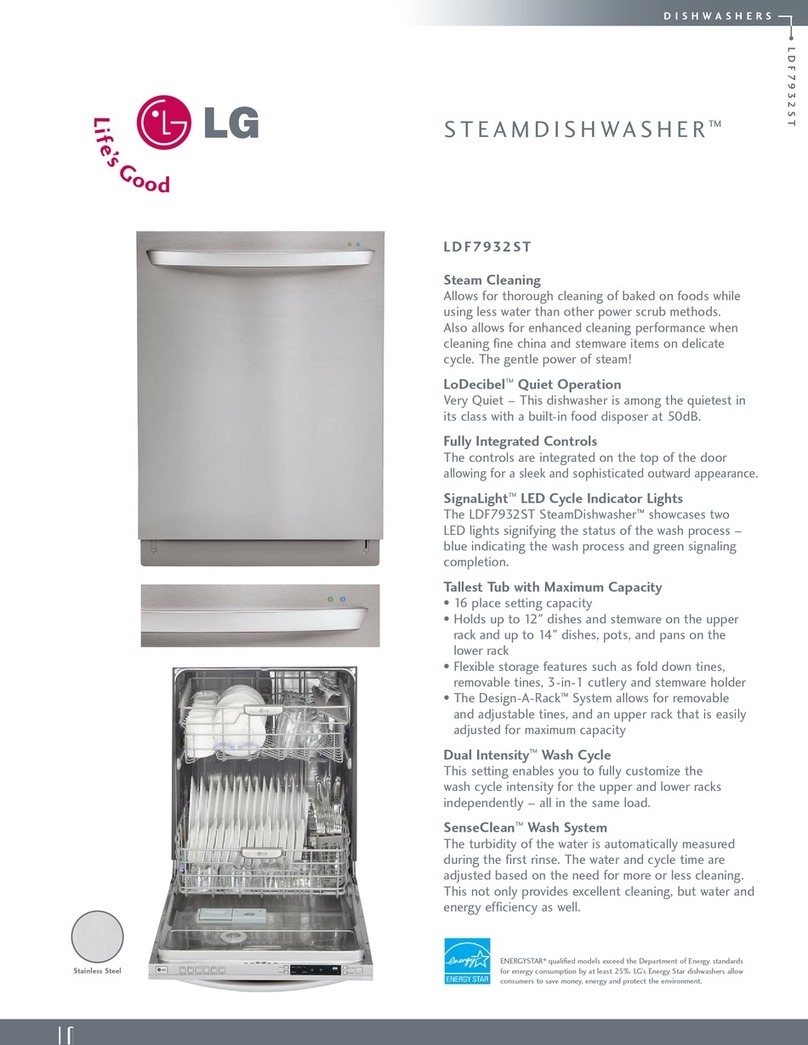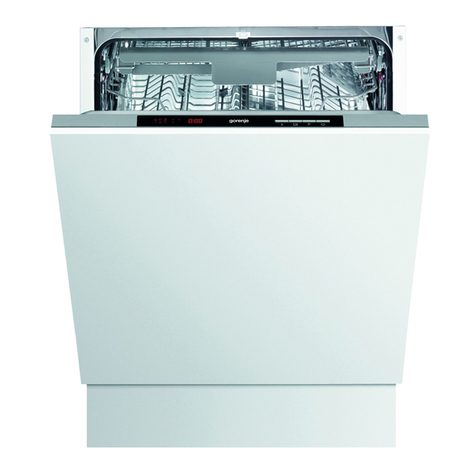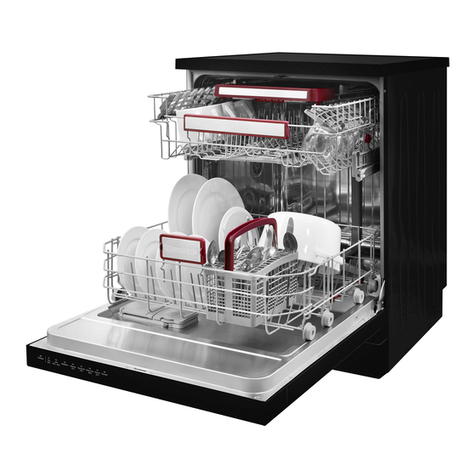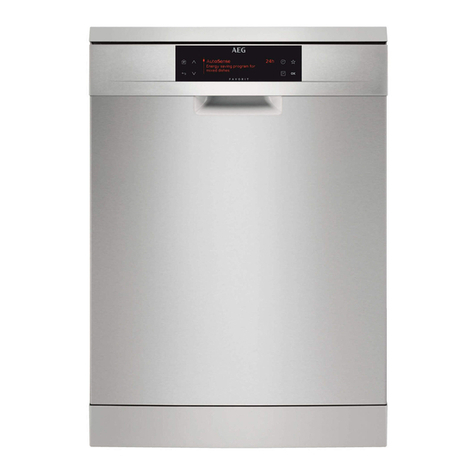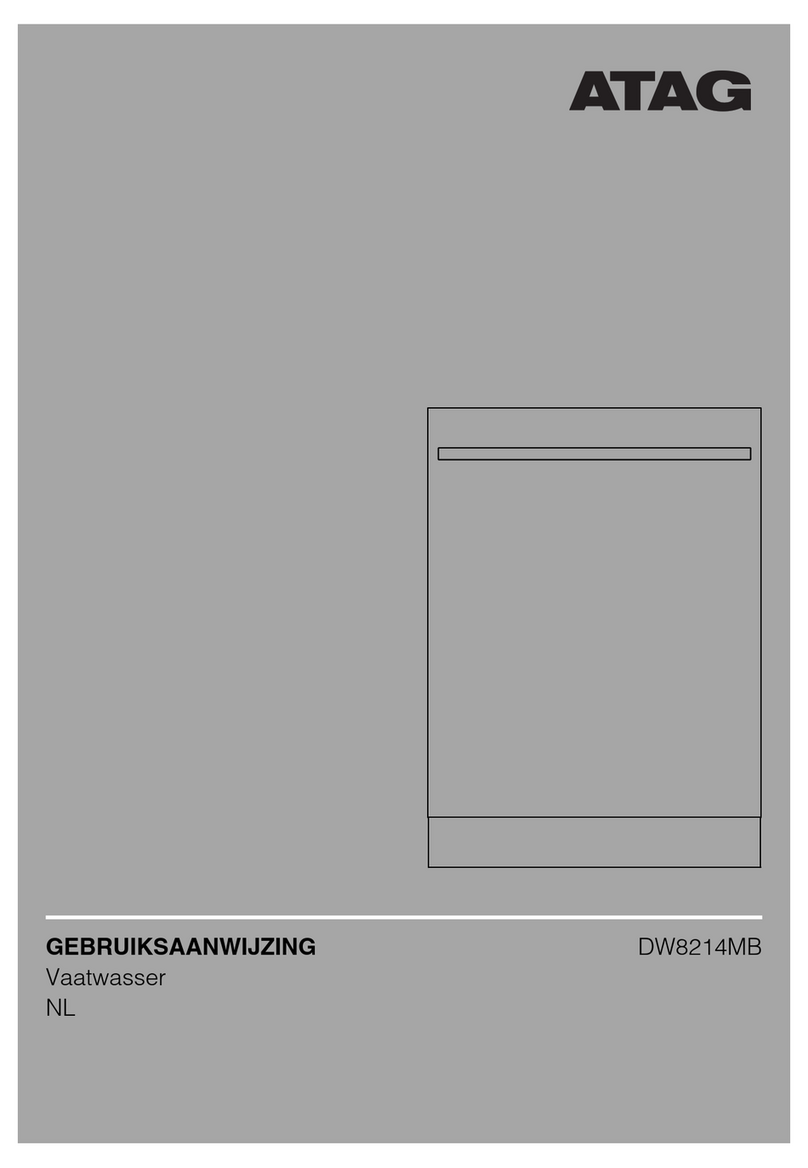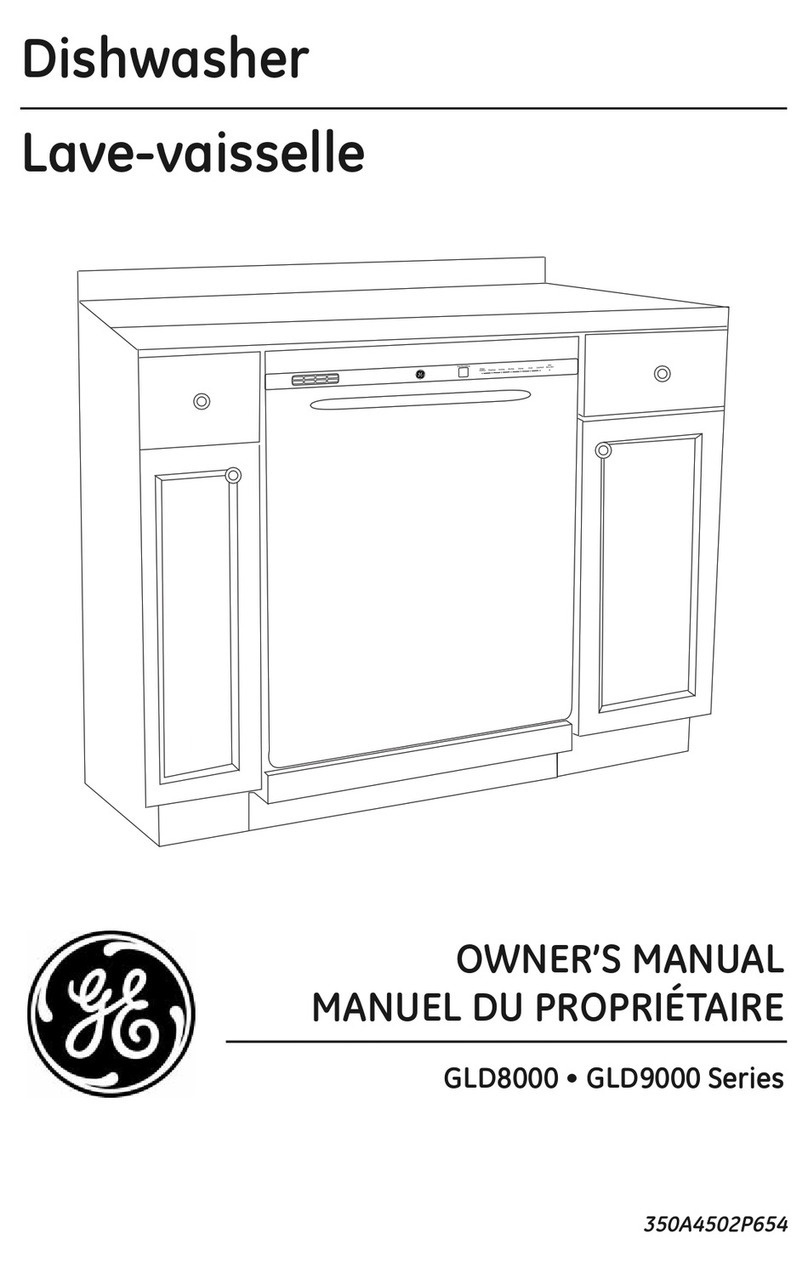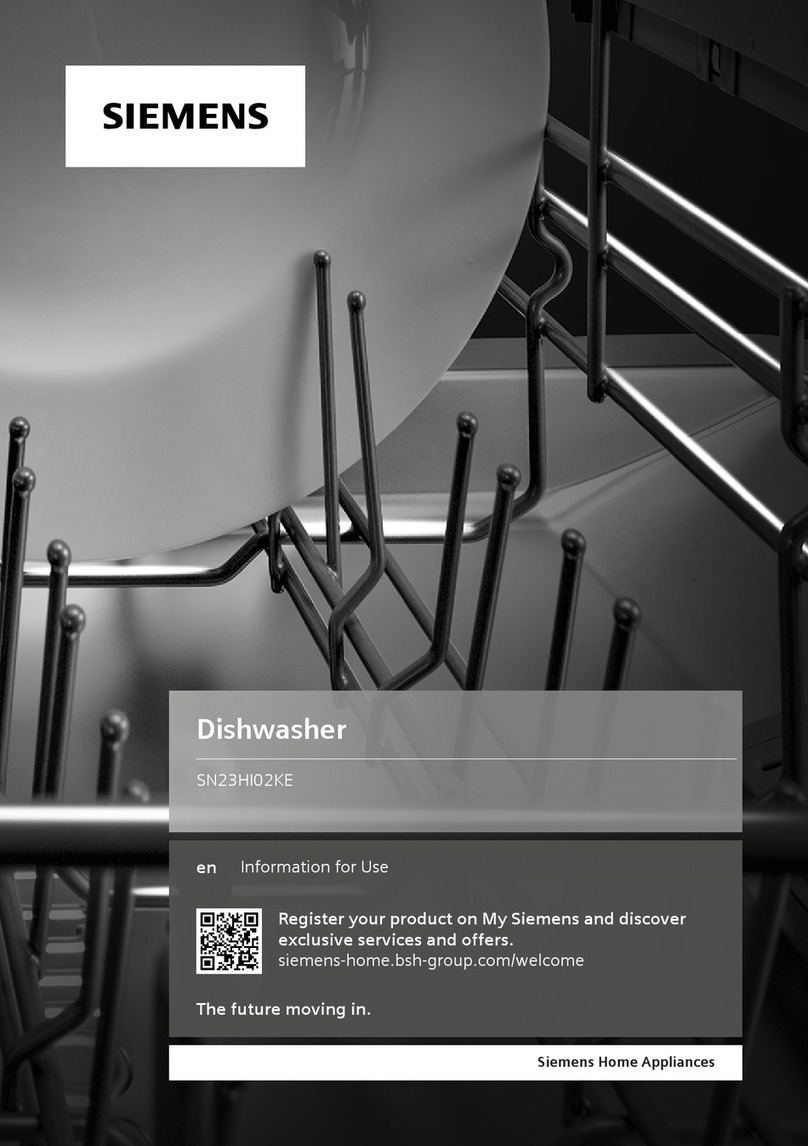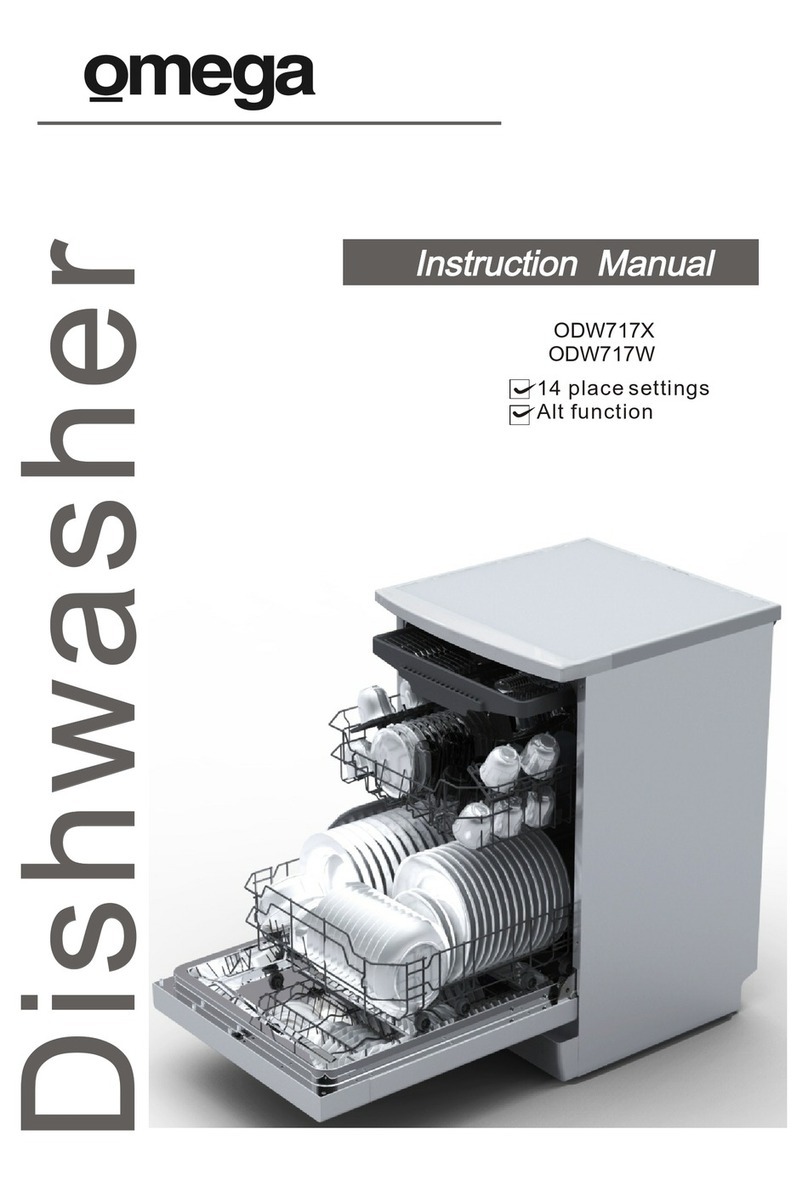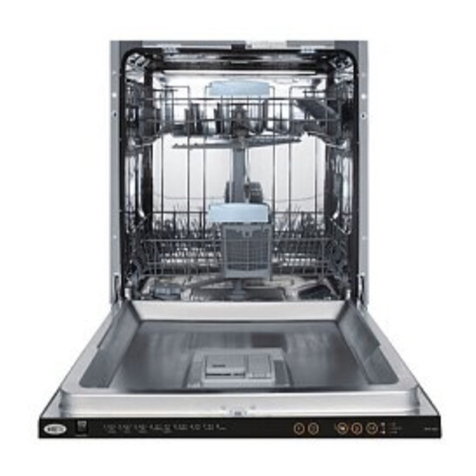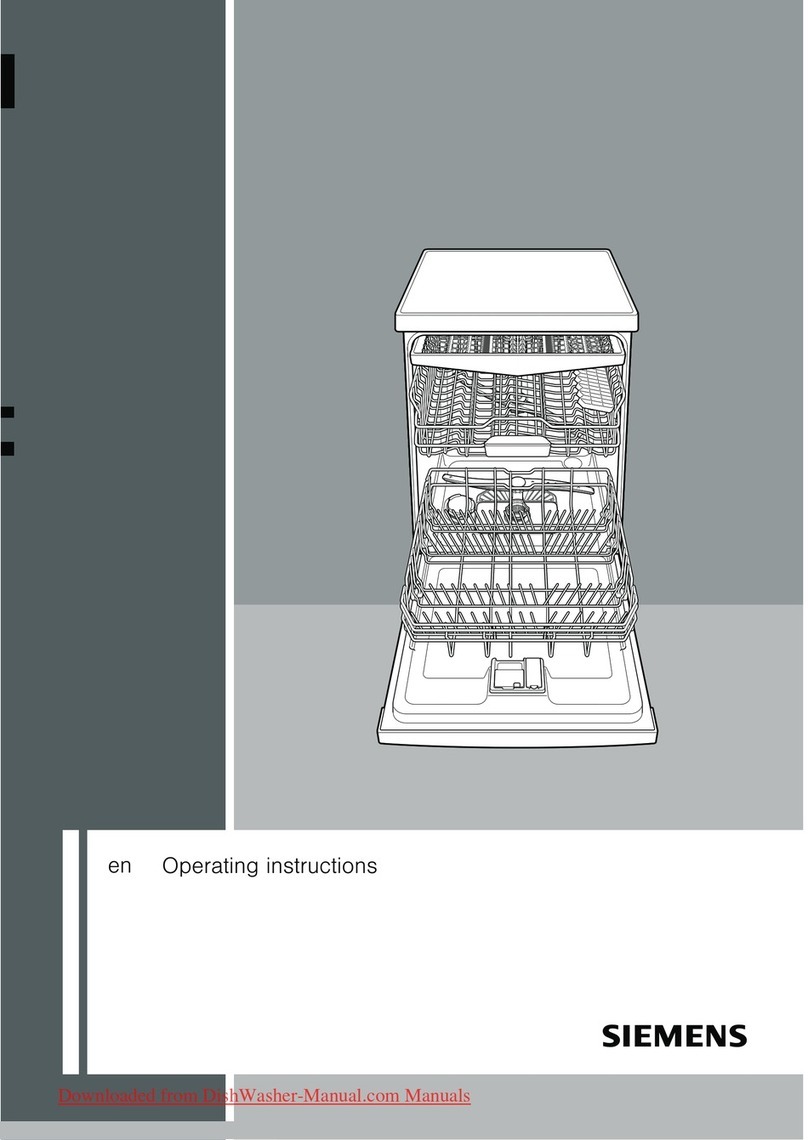
Safety instructions
•Read the operating instructions and keep
them in a safe place!
•Number of standard place settings: 13
•Never use the dishwasher for any purpose
other than that specified in these operating
instructions.
•Do not load the dishwasher door or
dishwasher baskets with anything other than
dishes.
•Never leave the dishwasher door open as
someone may trip on it.
•Use only dishwasher detergent!
•This machine can be used by children aged
8 and upwards, and by people with reduced
physical capacity, mental ability, memory
loss or lacking experience and knowledge.
These individuals must be supervised when
using the machine or have instructions on
how to use the machine and understand the
risks that can occur. Cleaning of the machine
must not be carried out by children without
supervision.
•Damaged mains cables must only be
replaced by a qualified electrician.
•Only use the dishwasher in household-type
environments for dishwashing household
dishes. All other use is prohibited.
•Never place dishes with solvent residues in
the dishwasher due to the risk of explosion.
Nor may dishes that contain ash, wax or
lubricants be washed in the dishwasher.
•Children must be watched. Do not allow
children to use or play with the dishwasher.
Be especially vigilant when the door is open.
Some detergent may remain inside! After
adding detergent, always start the
dishwasher immediately.
WARNING!
Knives and other pointed items must be placed
with the points down in the cutlery basket or
horizontally in other baskets.
WARNING!
Children must be supervised –dishwasher
detergent is corrosive!
Activate child lock (Kid Safe™)
You can activate the child lock (button lock) to prevent children from
starting the dishwasher. See the chapter Settings.
Installation
See the chapter Installation.
Winter storage/Transport
Store the dishwasher above freezing and avoid long transport distances
in very cold weather. Transport the dishwasher upright or laying on its
back.
Overflow guard function
The overflow protection starts pumping out the machine and turns off
the water supply if the water level in the dishwasher exceeds the normal
level. If the overflow protection is triggered, turn off the water supply
and call the service department.
Packing material
The packaging protects the product during transport. The packaging
material is recyclable. Separate the different packaging materials to
help reduce raw material use and waste. Your dealer can take the
packaging for recycling or direct you to the nearest recycling centre.
The packaging is comprised of:
•Corrugated cardboard made from up to 100% recycled material.
•Expanded polystyrene (EPS) with no added chlorine or fluorine.
•Supports made from untreated wood.
•Protective plastic made from polyethylene (PE).
Disposal
The dishwasher is manufactured and labelled for recycling.
When the dishwasher has reached the end of its service life and is to
be disposed of, it should immediately be made unusable. Pull out the
power cable and cut it as short as possible.
Contact your local authority for information about where and how your
dishwasher should be correctly recycled.
3
